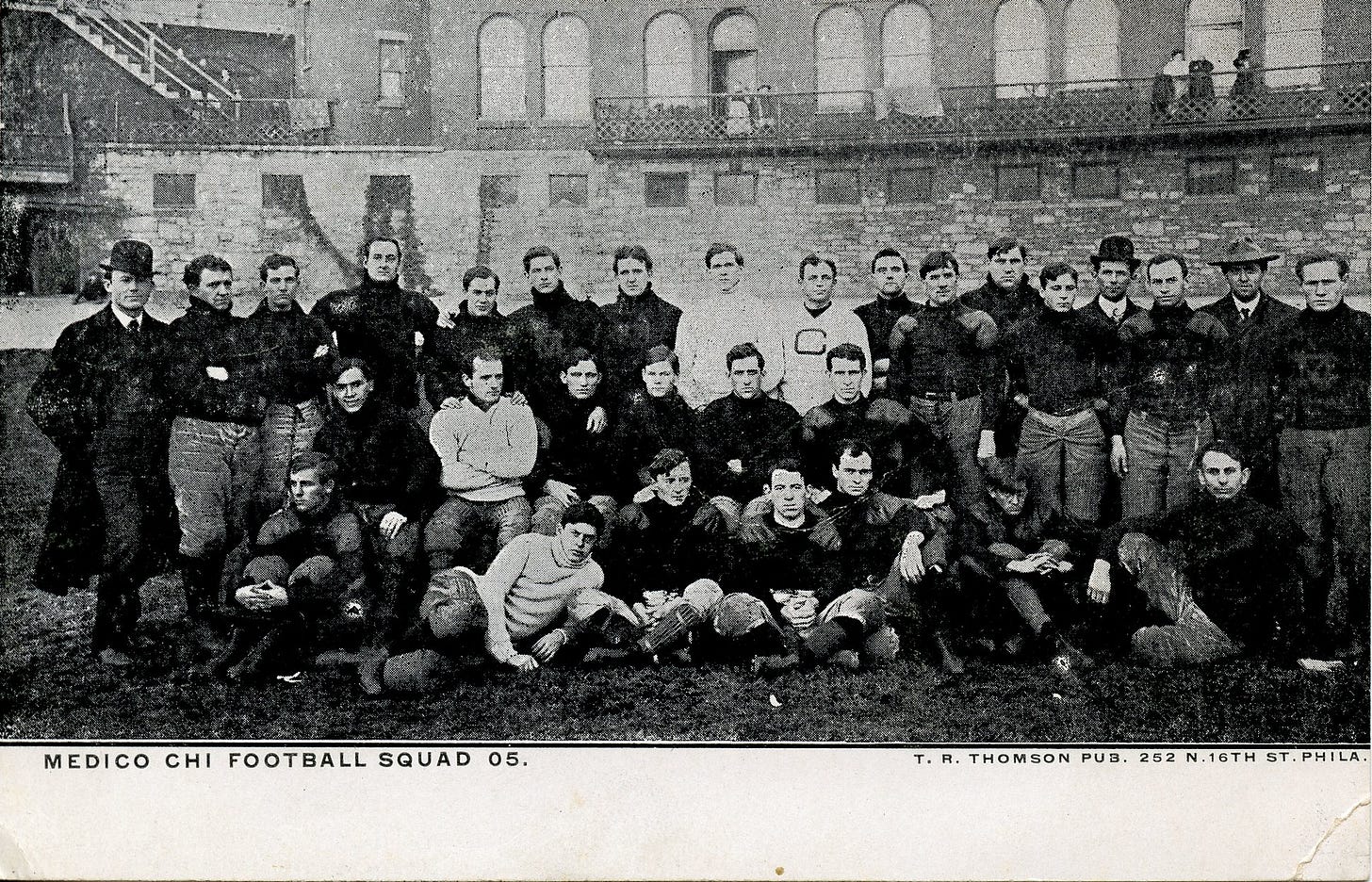Today's Tidbit... Medical and Law School Football Teams
College football barred professional athletes early on but took a bit longer to agree on the other professionals, that is, students in the professional schools of medicine, dentistry, and law. Whether professional students should play collegiately was a contentious issue in the 1890s as colleges increasingly grew into universities with graduate and professional programs.
Penn was the early target of these challenges since it was the largest university in the country and had multiple professional schools. They also drew attention by hiring Edward Wagenhurst as football coach in the early 1890s after he played football at and graduated from Princeton. Upon entering graduate school at Penn, he was the player-coach for Penn, which other teams found objectionable. His situation and others led to conference rules banning graduate or professional school students from participating in varsity sports.
The problem with such bans was that medicine, dentistry, and law were often undergraduate courses of study before WWI, so undergraduates entering professional schools were often barred from playing for their college teams based on their conference and school rules. This situation led students in the medical and law schools to form their own teams. Utah, for example, fielded a varsity football team and had separate teams for their medical and law schools. Likewise, USC fielded a law school team early in the last century.
In addition to the traditional colleges, the nation had many independent professional schools, many of which fielded football teams. For example, the University of Chicago played Rush Medical in 1894, 1898, 1900, and 1903, Hahneman Medical in 1896, Physicians & Surgeons in 1898 and 1899, and Milwaukee Medical in 1901. Physicians and Surgeons also took the field with Michigan in 1896 and 1904, losing by an average of 50-0 in those games.
The Medico-Chirurgical College in Philadelphia, which later became part of Penn, fielded a football team until abolishing its athletics program altogether in 1909 after a student died in a football game with the Philadelphia School of Pharmacy.
Iowa Osteopathic, now Des Moines University, played a solid schedule in the first decade of the 1900s with victories over Missouri and many others.
Following WWI, the various professional schools became increasingly, well, professional and graduate level in their coursework, so fewer of their students had the time or inclination to compete on the gridiron. More broadly, intercollegiate athletics became almost solely focused on undergraduate activity, resulting in many graduate students having used up their eligibility or being barred from participation.
Football Archaeology is reader-supported. Click here to buy one of my books or otherwise support the site.





Very informative... thanks.